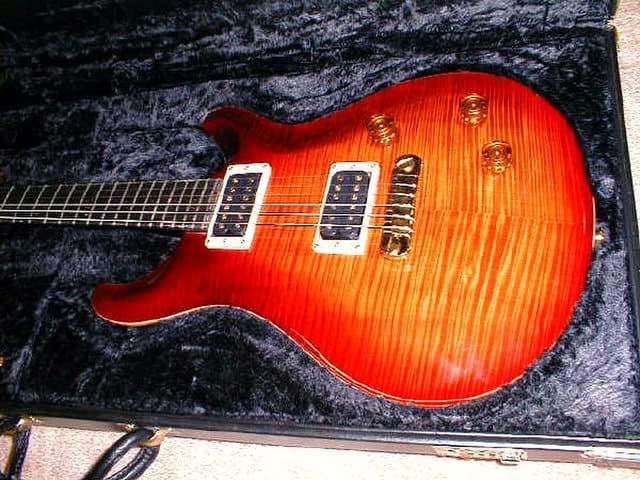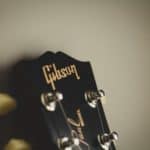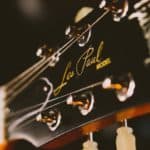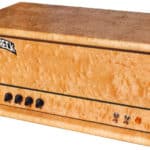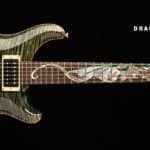Relative to most other big guitar manufacturers, PRS is relatively young.
Despite that, they’ve become quite popular as a brand and if you own one, you might be wondering what it’ll be worth in a few years.
Not all PRS Guitars hold their value well, but the PRS SE variants are currently holding around 79% of their value, while the more expensive Floyd Rose Custom 24 model still keeps about 74% of its original value.
If you happen to own a model in these series, then you’re in luck.
But what about the less popular models? And what determines how well a guitar will hold value anyway?
Read on to find out.
Do guitars, in general, hold their value through time?
In general, most good guitars will hold their value if they’re well taken care of. Guitars are built to last and most are made out of quality materials, even the mass-produced ones.
Guitars are even good investments if you understand the market for them well enough. Superior quality guitars increase in value over time rather than depreciating.
There are a lot of factors that determine whether a guitar will hold its value or decrease in value over time.
- Limited Production
- It’s Condition
- Rare materials ( like Gold or Brazillian Rosewood)
- Value-for-money
- Brand name
- Design and aesthetics
Collector guitars usually have most or all of these aspects, but most of your affordable-range guitars won’t increase as much. However, putting time into buying an upper-tier guitar usually means it will be more valuable in time.
Does that mean you should spend $5000 or more on your next guitar? I don’t think you should go out of your way to buy expensive guitars simply as assets, not unless you’re a collector.
The only benefit of getting expensive guitars if you’re not looking to use them as an investment is that their higher quality means they play way better than mass-produced $100 guitars.
Do use PRS guitars depreciate?
Most PRS Guitars depreciate in value, some more than others, but for good reason.
PRS Guitars are considered among some of the best produced in existence by many. Part of the reason for that is the constant improvements on newer models. Where other guitar brands are trying to retain the vintage feel of their older models, PRS is innovating.
If you bought an 86-88 model, despite its limited run and consequential rarity, you’d be hard-pressed to say it’s better than more recent models.
Technically speaking, newer PRS guitars are outperforming older models, so it doesn’t make much sense for someone to buy an outdated PRS when the new version is superior.
PRS has also not been around as long as other brands like Fender and Gibson, so a lot of what makes these brands’ collectibles valuable just doesn’t exist for PRS.
There aren’t any early 50s PRS guitars out there or Pre-CBS era PRS guitars, they just don’t have as much history yet.
This adds to the devaluation of models after buying them, even though you can say that today PRS guitars are becoming far more widely used and popular.
They still don’t match up to a Golden era Gibson Les Paul Standard, because they just don’t have that history of being played by icons yet.
What could make a guitar lose value?
Aside from whether or not it’s cheaply made, mass-produced, or poorly made. Some other factors affect guitar value.
In the case of PRS specifically, the loss of value is mainly because there’s not much of a nostalgia factor for these guitars. The constant improvement also means that newer models are superior, which means older models are likely to recoup a value loss.
In the case of Gibson guitars, for example, they tend to decrease slowly in value for ten years and then start to see a rise in value over time. This is most likely because of the vintage aspect, even for more mass-produced models.
PRS simply doesn’t have that going for them, at least not yet. Perhaps as the brand grows and becomes more well-known, we’ll see models becoming collector’s items, but for now, the saying goes that a PRS isn’t meant to be sold.
Specifics aside, there are factors that will make any guitar lose its value
Poor maintenance
We’ve covered guitar maintenance in a couple of other articles and needless to say, it’s an important aspect of owning any guitar.
From oiling the fretboard (not too much though) to cleaning the bridge to polishing the body. A lot goes into keeping your guitar in shape.
A lot can also go wrong during maintenance. Using cheap cleaning materials can mean scratches and discoloration or irreversible damage to parts.
Too much maintenance is even worse for your guitar as you’ll just wear it down faster or in the case of a fretboard, oversaturate it.
There’s also the aspect of a lack of maintenance. If you fail to maintain your guitar, no matter how good it is, it will lose its value over time. A neglected fretboard or rusty pickups will bring the value down on any guitar.
Misuse and Abuse
Then there’s outright mistreatment of your guitar. You’d be surprised how careless people can be with their instruments and while it’s often unintentional, it plummets the value of your guitar.
Have you ever spilled any beverages on your guitar? If so, you might find that it will leave a sticky residue or stain that just won’t come out and suddenly your guitar is “damaged goods.”
Swapping out original parts
Frankenstein was considered a monster for a reason. He may have been made of many men, but he wasn’t a man of his own and the same goes for a guitar you’ve just over-customized.
It goes with that age-old question of if you swap out all the parts of your guitar over time is it still the same guitar? Either way, an upgrade here and there makes it custom, but overdoing it will likely make your guitar lose value.
Poor Storage
Sometimes we don’t want to play our guitar every day. Sometimes you buy a guitar and it just feels so precious that you want to lock it away and keep it safe, and then one day you open it up and the fretboard is cracked and the neck is warped.
Improper storage, whether it’s for travel or a state of disuse, needs to be done properly or it could lead to just as much damage to your guitar.
When traveling, be sure to keep your guitar’s humidity in check and store it in a sturdy case. If you’re storing your guitar for a long period, you’ll need to take it out once in a while to maintain it regardless.
Are some PRS models more sought after than others?
There are some PRS models and issues that are more sought after, just like with any guitar brand.
A lot of guitar players are very hung up on the “hand-crafted” aspect of guitar making and for the earlier PRS models, a lot of them were built by hand.
A lot of PRS guitars nowadays aren’t handmade, but some are custom-made, adding to their value.
Paul Reed Smith has also produced private stock models.
These are limited-run guitars that go back to the early years of the company, they are generally very sought after and equally expensive due to the artistry, luthier work, and limited availability of stock.
Should you worry about your guitar losing its value?
Most guitars lose value over time, the question you’re more likely wondering is how much value?
Depending on the make and model of your guitar, it may see very little loss in value, considering that you take good care of it, that is.
Anything American-made tends to hold value quite well.
If you want to guarantee that your guitar will not only maintain value but even increase value, become a famous guitar player.
Then, no matter what you’re playing, it’s going to be very valuable in a few years.
So with that being said, just remember to take care of your guitar and when the day comes that you consider trading it in or selling it, you’ll get a good return.

Hello there, my name is Ramiro and I’ve been playing guitar for almost 20 years. I’m obsessed with everything gear-related and I thought it might be worth sharing it. From guitars, pedals, amps, and synths to studio gear and production tips, I hope you find what I post here useful, and I’ll try my best to keep it entertaining also.

